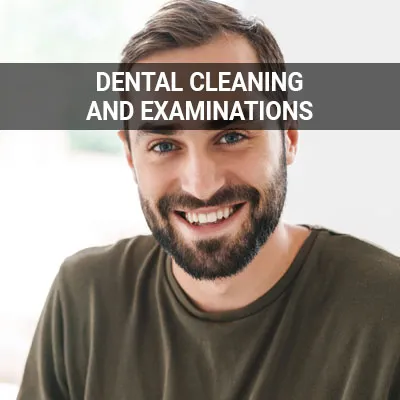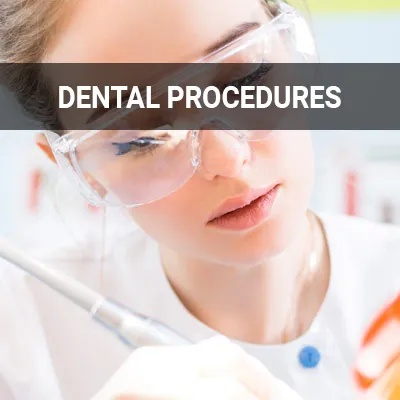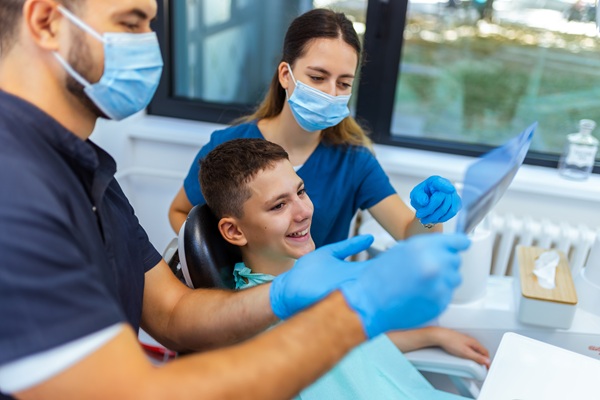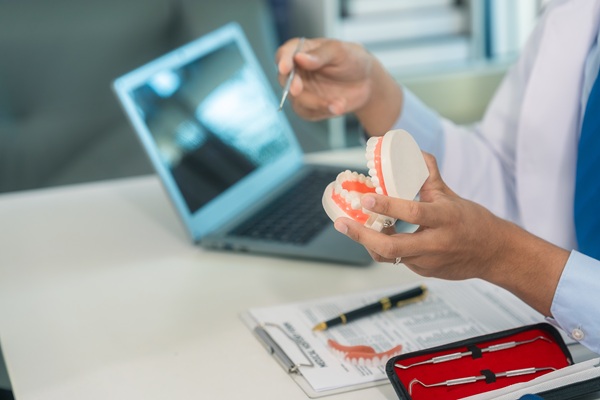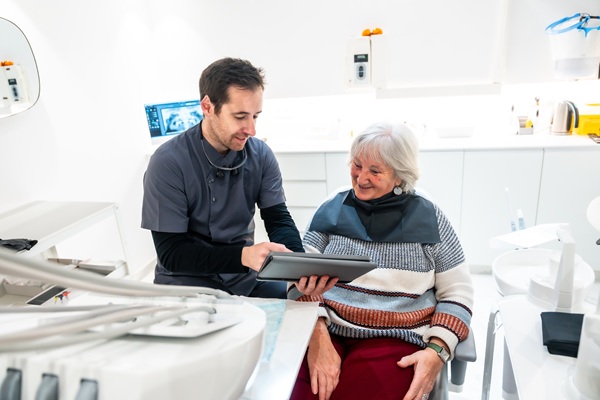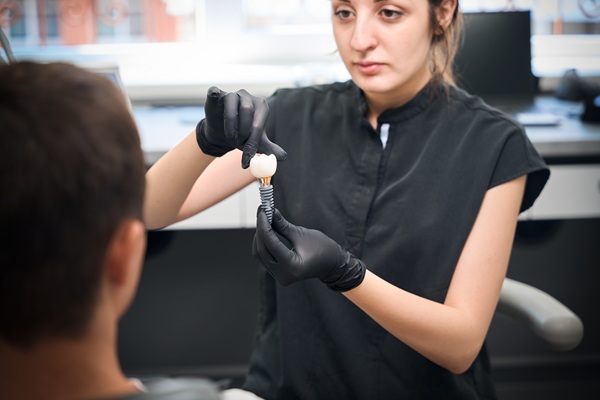Oral Hygiene Basics Alpharetta, GA
Understanding oral hygiene basics allow people to better care for their teeth. However, the basics extend beyond the teeth — they pertain to the entirety of the mouth, including the gums, cheeks, and tongue. Oral health is critical to the body's overall health.
Starting good oral hygiene habits early in life can set everyone up for a lifetime of not only healthy smiles but also healthy bodies. To get started with an oral hygiene routine, contact our Windward Parkway Dentistry team in Alpharetta at (770) 814-6224 to schedule an appointment.
The Importance of Good Oral Hygiene
The teeth are connected to the jaw bone in the face through the tooth's roots. These roots are deeply ingrained in the bone to provide structure and strength to the mouth, which is important for biting, chewing, and speaking. Without an oral hygiene routine, the teeth risk the buildup of bacteria, otherwise known as tartar and plaque. This appears as a yellowish buildup on the teeth around the gum line.
Over time, if someone does not brush, floss, and rinse at home regularly and maintain their regular dental checkups, this buildup can start to affect the smile. If left alone, the bacteria can get beneath the gums and create dental pockets. These pockets occur when the gum tissue starts to pull away from the teeth. This may also cause gum recession, which may eventually expose the tooth roots. If the bacteria have access to the roots beneath the gum line, they may gain access to the body's bloodstream.
Once the bacteria can enter the bloodstream, the entire body may be at risk. Starting and following an oral hygiene routine will help prevent the buildup of bacteria and plaque on the teeth and keep the body safe. To protect the health of the smile is to protect the overall health of the body.
“To protect the health of the smile is to protect the overall health of the body.”
How to Properly Brush Teeth
The American Dental Association (ADA) recommends that people brush their teeth for two minutes at least twice a day. Brushing is crucial for removing plaque and bacteria buildup, which can both lead to gum disease and tooth decay.
Poor brushing is almost as bad as not brushing at all. In order to remove bacteria and plaque, teeth need to be brushed for at least two minutes. Take the time to move the toothbrush in gentle, circular motions, and make sure to clean all the surfaces of the teeth.
Proper flossing is also integral to a good oral hygiene routine. According to Healthline, patients should use 18 to 24 inches of dental floss, winding most of it around both middle fingers. Only about one to two inches of floss should be reserved for the teeth. Floss should be held taut between the thumbs and index fingers before being placed between the teeth. It should then be gently glided up and down. Patients should curve the floss at the base of the tooth, forming a C shape. A new, clean section of floss should be used for each tooth.
The mouth is full of bacteria. Proper brushing and flossing can keep these bacteria under control and keep them from causing any damage. But if hours or days pass between brushings, the bacteria can build up. When left in place too long, the bacteria start attacking the teeth.
“The mouth is full of bacteria. Proper brushing and flossing can keep these bacteria under control and keep them from causing any damage.”
Helping Other Family Members With Oral Hygiene
Children and seniors have special oral hygiene needs. Individuals with young children or older adults in their care may need to help them with their dental hygiene.
Oral Hygiene for Kids
Children will need help brushing their teeth until they learn to do it on their own. Start cleaning their gums with a clean, wet cloth before they have teeth to get them used to the routine.
When a child's first teeth start to appear, brush them twice a day with a child-sized toothbrush with soft bristles. Start flossing as soon as the child has teeth in contact with each other. This usually occurs around the ages of two and three.
Once children can hold a toothbrush, encourage them to brush their teeth. Watch them to make sure their teeth are being cleaned properly. To make brushing more fun, let them pick out a toothbrush featuring their favorite cartoon character. Make it into a fun family activity by brushing with them and playing a song.
Continue to supervise the brushing until they have adopted good oral hygiene habits.
Oral Care for Older Adults
Older adults are more likely to have special oral hygiene needs. According to the CDC, many seniors are more likely to have untreated tooth decay or gum disease. Several adults over the age of 65 have also experienced tooth loss.
Older adults are also likely to take multiple prescription and over-the-counter medications, increasing the likelihood of dry mouth. Dry mouth can increase the risk of tooth decay. Encourage older adults to brush their teeth regularly, drink plenty of water, and avoid alcohol, which can contribute to dehydration.
Older adults may also benefit from adding a fluoride rinse to their oral care routine to combat tooth decay. Adults with dentures may also need products designed specifically for denture care. For example, tartar can build up on dentures just as it does on teeth. Denture cleanser tablets are designed to keep dentures free of odor, stains, and bacteria, and many are safe for overnight soaking.
“Children and seniors have special oral hygiene needs.”
Check out what others are saying about our dental services on Yelp: Oral Hygiene Basics in Alpharetta, GA
How to Select a Mouthwash
Mouthwash is optional and should not be used in place of brushing or flossing. But a good mouthwash can help improve oral health in several ways: It can reduce the amount of acid in the mouth, help kill bacteria that contribute to bad breath, and increase fluoridation — all of which help prevent tooth decay.
Make sure to choose an ADA-approved mouthwash. Approved brands include ACT Anticavity Fluoride Rinse, CloSYS Fluoride Rinse, Colgate Phos-Flur Ortho Defense, and Hello Kids Fluoride Rinse. The dentist may have additional recommendations for mouth rinses.
Patients should also be sure to look for the ADA stamp of approval when looking for toothpaste and denture products. Given the wide variety of options available, it can be more difficult to choose a toothbrush. Patients should choose a toothbrush with a head large enough to allow easy access to all surfaces of the teeth. Most patients should also choose a soft-bristled toothbrush for optimum comfort and safety.
“A good mouthwash can kill bacteria that contribute to bad breath and help prevent tooth decay.”
Questions Answered on This Page
Q. Why is good oral hygiene important?
Q. How does one maintain a healthy smile?
Q. How can I properly brush and floss my teeth?
Q. What family members may need extra help with their oral hygiene?
Q. Why should I use mouthwash?
People Also Ask
Q. How often should someone have a dental checkup?
Q. What happens during a dental cleaning?
Q. How do lifestyle choices affect dental health?
Q. What is the importance of having a routine dental checkup?
Health Practices for a Healthy Smile
If the goal is to have a healthy smile for life, then there are a number of things anyone can do to achieve that goal. The first and quite possibly most important thing to do is to stay in touch with the dental team. The dental professionals on this team will come to know each individual and their smile over time. They can provide guidance as the mouth ages and changes. To build and maintain this connection, regular dental checkups are important.
Dental checkups are normally recommended every six months, though some individuals may need them more often if they have a history of oral health concerns or gum disease. Between checkups, everyone should continue their at-home oral hygiene routine. While a checkup is a great way to remove the buildup of plaque and polish the teeth to protect them from bacteria, everyone needs to remove particles and bacteria daily to keep their smile healthy.
A daily routine should include brushing, flossing, and rinsing with a mouthwash. The dentist may also recommend different or additional steps depending on the smile's health. Additional recommendations may include:
- Drinking fluoridated water
- Quitting smoking and other tobacco products
- Limiting alcoholic, caffeinated or sugary drinks
- Controlling other diseases that may affect the teeth
- Deep cleaning
“While a checkup is a great way to remove the buildup of plaque and polish the teeth to protect them from bacteria, everyone needs to remove particles and bacteria daily to keep their smile healthy.”
Frequently Asked Questions
Q. Why are regular dental visits important?
A. Regular dental checkups can help identify minor dental issues before they become more serious. Treatment is likely to be simpler when problems are caught early. For example, when tooth decay and gum disease are treated early, they can often be reversed before significant tooth damage occurs. Untreated gum disease and tooth decay can lead to tooth loss and other major problems.
Q. Do I still need to see a dentist if I'm not having any problems?
A. Yes. Even if you are not experiencing any symptoms, you can still have dental issues such as tartar buildup and tooth decay. A dentist will be able to identify these issues before they become more serious.
Q. What are some signs that I should see a dentist?
A. If you experience swollen or sensitive gums, bad breath, pain or swelling in your mouth, difficulty chewing, or sensitivity to hot or cold foods, contact a dentist. These symptoms may be an indication of something more serious.
Q. Why are dental X-rays necessary?
A. Dental X-rays help dentists see tooth problems, including cracks and tooth decay, that are not visible to the naked eye. Expect to have X-rays taken if you have not been to the dentist in a while. Your dentist will take as few X-rays as possible to limit your radiation exposure. Let your dentist know if you are pregnant or may be pregnant, as pregnant women should not have X-rays taken.
Q. Is fluoride necessary for teeth?
A. Fluoride strengthens teeth while preventing decay. The American Dental Association (ADA), the American Academy of Pediatrics (AAP), and the Centers for Disease Control and Prevention (CDC) alike agree that children should use fluoride toothpaste for brushing. It also benefits adults.
Dental Terminology
Call Us Today
Before scheduling an appointment, be sure to make notes of any current at-home oral hygiene routines to be able to talk to the dental team about how to improve them. Scheduling an appointment and following through with dental checkups is a great start to a lifetime of healthy smiles.
When scheduling a dental appointment, take this time to make the dental team aware of any concerns and tell them if they need to take any steps to make the experience more enjoyable. To schedule an appointment, call us at 770-814-6224 today!
Helpful Related Links
- American Dental Association (ADA). Glossary of Dental Clinical Terms. 2024
- American Academy of Cosmetic Dentistry® (AACD). Home Page. 2024
- WebMD. WebMD’s Oral Care Guide. 2024
About our business and website security
- We accept the following payment methods: Cash, Check, Discover, MasterCard, and Visa
- We serve patients from the following counties: Fulton County
- We serve patients from the following cities: Alpharetta, Bethany Crossing, Herring Township, and Milton
- Norton Safe Web. View Details
- Trend Micro Site Safety Center. View Details
Back to top of Oral Hygiene Basics




